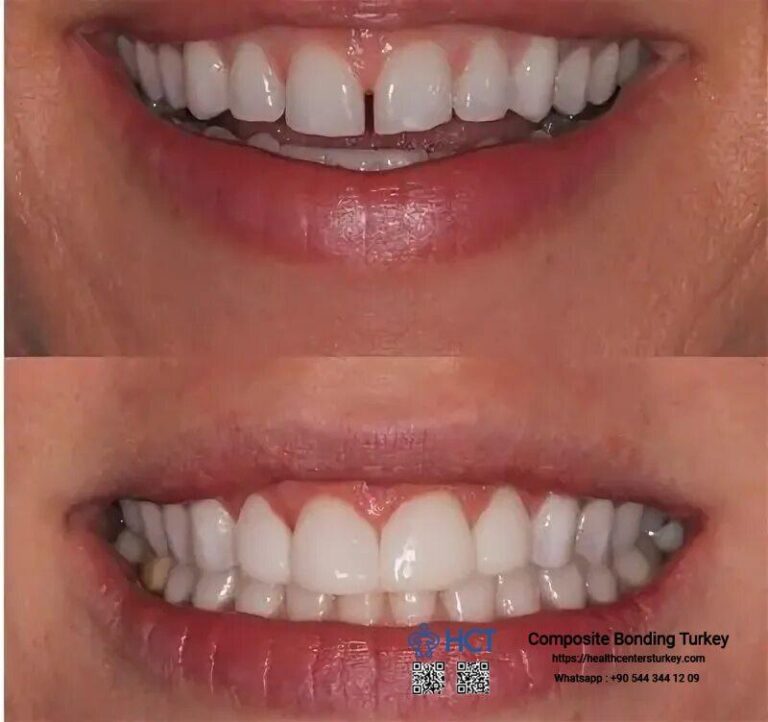Knowledge in Oral Health at Affordable Rates
Knowledge in Oral Health at Affordable Rates
Blog Article
Restore Your Smile with Cutting-Edge Dental Treatments in Turkey
Dental implants have become a popular solution for these seeking to replace missing teeth. Understanding how these implants can have an result on adjacent teeth is important for anybody considering this process, in addition to for dentists and specialists concerned in dental care.

One vital aspect is that dental implants are designed to be anchored into the jawbone, which implies they're unbiased of adjacent teeth. Unlike dental bridges, which often require the alteration of neighboring teeth, implants can fill the hole without compromising the health or structure of these surrounding teeth.
This independence helps keep the integrity of adjacent teeth. When a tooth is lost, there is normally a natural tendency for neighboring teeth to tilt or shift into the empty area. Such motion can result in misalignment, which can affect chew and total oral health. By putting an implant, you effectively prevent this potential shift, selling higher alignment in the long run.
Uncover Best Dental Treatments in Turkey for Implants, Veneers, and More
Additionally, dental implants assist maintain bone density in the jaw. A natural tooth root supplies stimulation to the encircling bone, maintaining it healthy and strong. When a tooth is missing, the bone can start to deteriorate due to lack of stimulation. With a dental implant mimicking a natural root, bone loss could be minimized, which not directly benefits adjacent teeth by preserving the general structure of the dental arch.
While dental implants are advantageous, improper placement can impact neighboring teeth. If an implant is positioned too shut to another tooth, it might exert undue pressure on that tooth, resulting in discomfort or potential damage. Proper planning and imaging methods are important for avoiding such issues.
High-quality Veneers for a Stunning Smile in Turkey
Moreover, maintaining good oral hygiene is essential after receiving an implant. If not properly cleaned, surrounding teeth might turn into vulnerable to dental points such as decay or gum disease. This underscores the importance of diligent oral care following the process to ensure both implants and adjacent teeth stay wholesome.
Regular dental check-ups are also very important for monitoring the health of surrounding teeth. Dentists can establish any shifts or potential problems early, allowing for well timed interventions. This proactive approach ensures that both the implant and adjacent teeth can coexist with out issues.
Unveiling the Leading Dental Solutions of Turkey for Beautiful Smiles
Another consideration is the impression of implants on bite pressure. When a single tooth is missing, the load of chewing could shift to adjacent teeth, potentially resulting in put on or strain. Implants restore proper chew dynamics by redistributing forces within the mouth, which can protect surrounding teeth from undue stress.
Some sufferers could elevate issues about the appearance of dental implants. Well-placed implants can blend seamlessly with present teeth, bettering overall aesthetics. In contrast, failing to exchange a missing tooth can result in aesthetic points, including collapsing of facial structure and changes in smile dynamics.
It's also value discussing the psychological features of dental health. Experiencing tooth loss can adversely affect one’s self-esteem and willingness to engage socially. By restoring your smile with implants, you'll have the ability to positively influence not only your oral health but also your emotional well-being.
Long-term success of dental implants typically hinges on numerous elements, together with the affected person's health, maintenance habits, and the standard of the preliminary process. If adjacent teeth are wholesome and correctly cared for, the chances are they will continue to thrive alongside the implants.
Knowledge in Restorative Dentistry at Affordable Rates
In conclusion, dental implants play her comment is here an important role in not just restoring individual smiles, however in preserving the health and structure of adjacent teeth. By stopping shifting, sustaining bone density, and redistributing chunk forces, implants can be certain that surrounding teeth stay in optimal condition. Proper placement, hygiene, and regular dental visits can further enhance the benefits of dental implants, resulting in a more healthy, extra assured smile for years to come back.
- Dental implants may help preserve the alignment of adjacent teeth by offering a steady anchor, stopping adjacent teeth from shifting into the hole left by a missing tooth.
- The presence of an implant could stimulate bone development within the jaw, serving to to preserve the overall structure and integrity of the adjacent teeth.
- Unlike traditional bridges, implants do not require alteration of surrounding teeth, thus preserving their strength and anatomy.
- Implants can improve the distribution of chunk forces evenly throughout the dental arch, decreasing the stress on neighboring teeth during chewing.
- A well-integrated dental implant can lower the risk of bone loss within the space surrounding adjacent teeth, contributing to their long-term health and stability.
- The aesthetics of adjacent teeth could be improved as a end result of help provided by implants, which can result in higher general cosmetic outcomes.
- With correct placement, dental implants can prevent gum recession round adjacent teeth by maintaining adequate dental architecture.
- Implants may help mitigate the risks of periodontal disease in close by teeth by promoting wholesome gum tissue and offering a cleanable surface.
- Long-term success of dental implants can result in improved oral hygiene routines, which in turn benefits the health of surrounding teeth.
- The improved practical ability of an implant can encourage sufferers to chew more successfully, thus rising saliva production and aiding in the safety of adjacent dental tissues.undefinedHow do dental implants have an result on adjacent teeth?
What are dental implants and how do they work together with adjacent teeth?undefinedDental implants are synthetic tooth roots which are surgically positioned into the jawbone. They present a stable basis for replacement teeth while ensuring minimal disruption to adjacent teeth, preserving their integrity and alignment. Unveiling the Leading Oral Health Solutions in Turkey for Beautiful Smiles.
Uncover Affordable Dental Care in Turkey
Can dental implants cause problems for nearby natural teeth?undefinedGenerally, dental implants don't hurt adjacent natural teeth. However, if the implant is not positioned accurately or if there’s insufficient oral hygiene, it might result in complications such as adjacent tooth decay or gum disease.

Will getting a dental implant change the way my adjacent teeth feel?undefinedMost patients report no change in the sensation of adjacent teeth after implant placement. However, it may take some time to regulate to the presence of the implant, much like how one could adapt to other dental restorations.
Can dental implants help preserve the health of adjacent teeth?undefinedYes, dental implants can help preserve the health of adjacent teeth by stopping bone loss that may occur after tooth loss. This preservation supports the alignment of nearby teeth, lowering the chance of shifting or misalignment.
Modern Solutions for Dental Implants in Turkey
Do I need to modify adjacent teeth when getting an implant?undefinedTypically, adjacent teeth do not want alteration when inserting an implant. This is certainly one of the advantages of dental implants over conventional bridges, which frequently require reshaping adjacent teeth for support.
How does the healing strategy of an implant affect nearby teeth?undefinedThe healing course of entails osseointegration, where the implant fuses with the jawbone. During this time, adjacent teeth remain unaffected and retain their operate, although it’s essential to observe post-operative care suggestions. Your Guide to Travel for Dental Care in Turkey.
Highly Rated Dental Treatments for International Patients in Turkey
Can dental implants lead to bone loss around adjacent teeth?undefinedIf dental implants are positioned properly and cared for adequately, they need website link to not lead to bone loss round adjacent teeth. In reality, they can help stimulate bone development, combating the natural bone loss that always follows tooth extraction.
What precautions should I take to guard adjacent teeth after getting an implant?undefinedRoutine dental hygiene, including brushing and flossing, together with regular dental check-ups, is crucial. Avoiding onerous foods and following your dentist’s aftercare directions may also protect each the implant and adjacent teeth.
Is it common for adjacent teeth to shift after an implant is placed?undefinedIt's not typical for adjacent teeth to shift after an implant placement, particularly when the implant is placed appropriately and maintained properly. If there’s any motion, it may be as a outcome of other underlying points that should be evaluated by a dental skilled. Report this page